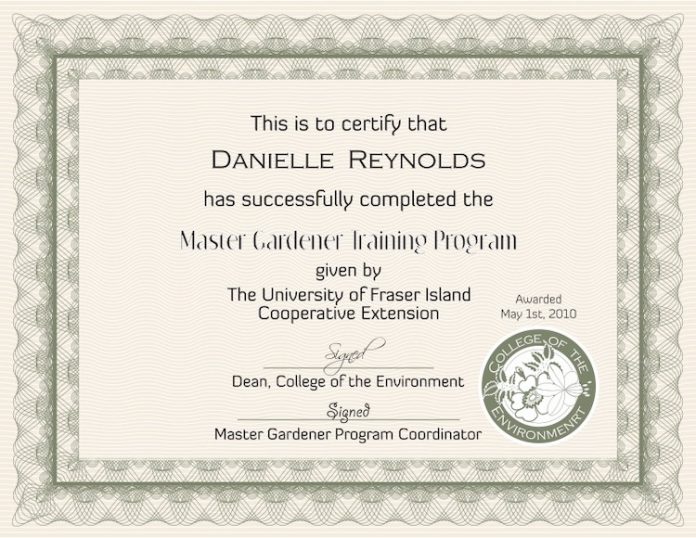
You’ve heard both terms many times, no doubt, and perhaps you’ve earned at least one of each over the course of your career. We’re talking about “certificates” and “certifications.” These terms sound like they may be related and often are used interchangeably, but there’s a significant difference between them. In short, certificates mark participation, while certification marks proficiency.
Certificates are common across many industries. They are nearly always tied to participation and completion of educational activities such as in-person or online workshops, eLearning modules, or video-based classes. There is often a short test or assessment to mark the completion of the activity, but those tests are rarely challenging nor developed specifically to measure proficiency. They more often check for the participant’s recall of the information, not their ability to apply or analyze new learnings.
Certification exams are usually more rigorous, and require study and preparation. The certification designer determines which skills and competencies are needed for an individual to be successful in the relevant topic, and creates the exam to measure those skills. High-value certification programs typically include learning opportunities that target the tested skills, either through self-directed e-learning, videos, or live sessions. They also may provide social learning groups and study guides. So these high-value certifications offer participants the opportunity to increase their skills and competency level, and then measure that proficiency. Earning a certification means the learner has demonstrated they’ve met a defined set of standards.
While both certificates and certifications can serve to reward an individual for achieving a milestone, certifications are more likely to lead to a measurable impact for the certifying organization—as well as enable proficiencies that can be applied to the learner’s profession and even help bolster their resume. To understand how, we’ll need to discuss the levels of measurement education program managers use to assess the success, effectiveness, and value of their initiatives.
Levels of Education Measurement
In general, there are three levels of education measurement:
- Engagement: Did the learners participate in the learning activity via attending a session or completing an e-learning page?
- Content efficacy: Was the content successful in helping learners meet the intended objectives?
- Business impact: Did the learners demonstrate the intended behavior change that led to measurable results?
It’s easy to see where certificates fall within those three layers. They drive and measure engagement. They reward learners for sticking with and completing an activity. But remember, while certificates show participants took the time to learn a new skill, they don’t promise the skill was really learned. Think about it: Have you attended a workshop or class that did not really change your behavior?
Certifications, on the other hand, take learning a few steps further.
Driving Proficiency (and Business Impact) with High-Value Certifications
Many organizations offer certification specifically to ensure that individuals achieve a level of proficiency that will drive business results, such as an increase in customer spend. This requires an understanding of the specific behavior that drives those results. Development begins with a thorough needs analysis aimed at identifying competencies of successful customers (or partners, vendors, etc). Those competencies then are connected to the expected result. For example, let’s say that a customer who is able to pull and analyze certain types of reporting is more likely to increase their spend on the platform. Certification designers then target and test for that competency (how to interpret reporting), which leads to certified individuals who are more likely to exhibit the behavior (pulling the report) that drives the business result (increased spend).
Therefore, when an organization offers a high-value certification program, it is more likely to see results from participants who achieve the certification over those who do not. Facebook Blueprint is a great example of a high-value certification program that offers a curriculum tailored to the principles measured in the certification exams. Individuals who become a Facebook Certified Professional can add the certification to their resume and boost their career.
Many organizations also offer certifications as part of a partner program, where they require potential partners to complete a certification in order to gain official partner status. This ensures the partner has proven they have the appropriate level of knowledge and skills to successfully represent the organization in their business activity. This would not be possible with a certificate alone as there would be no guarantee the partner had demonstrated proficiency. Google is one such company that requires certification for Google Partners, which adds to the credibility of its partner program.
Which Learning Program Is Right for Your Business?
When considering whether your organization should (or should not) offer certification—or simply provide certificates—it’s imperative to align the business needs with your learners’ goals. Simply offering a certification does not necessarily mean you’ll find participants who desire to be certified. Remember that a truly high-value certification requires time investment to take the course, as well as study and prepare for the test. So offering a certification will need to come with benefits that matter to the learners, not just the business.
In summary, certificates can be a fun way to engage learners by marking their participation in a course of completion of an activity, but they are limited in demonstrating business impact beyond increasing engagement. High-value certifications, however, can drive results through targeted education and assessment that validates the individual is prepared for success.


